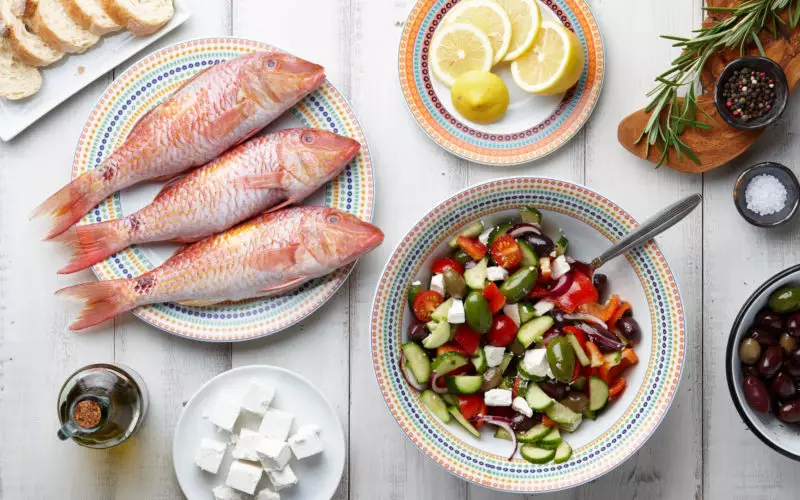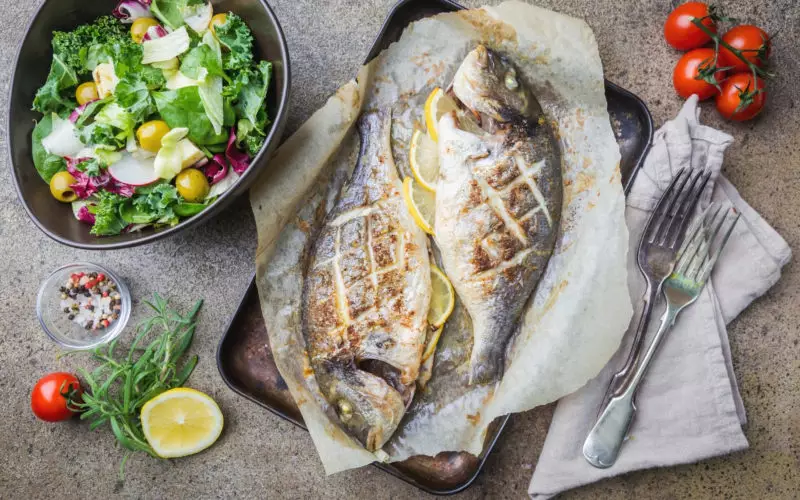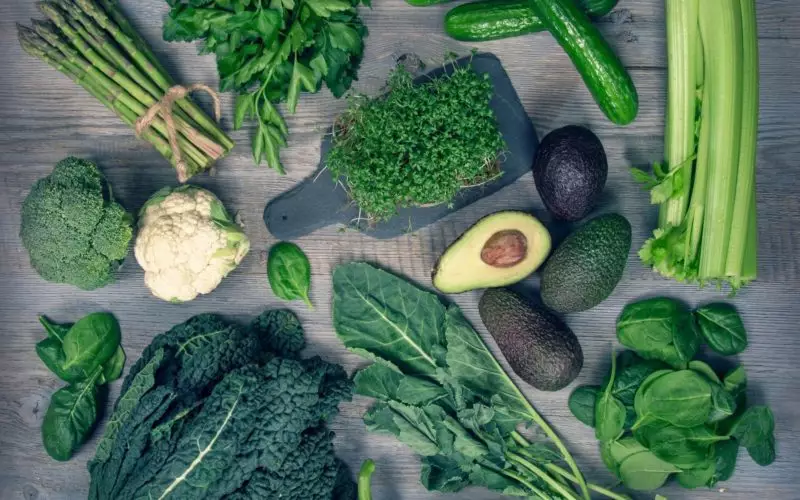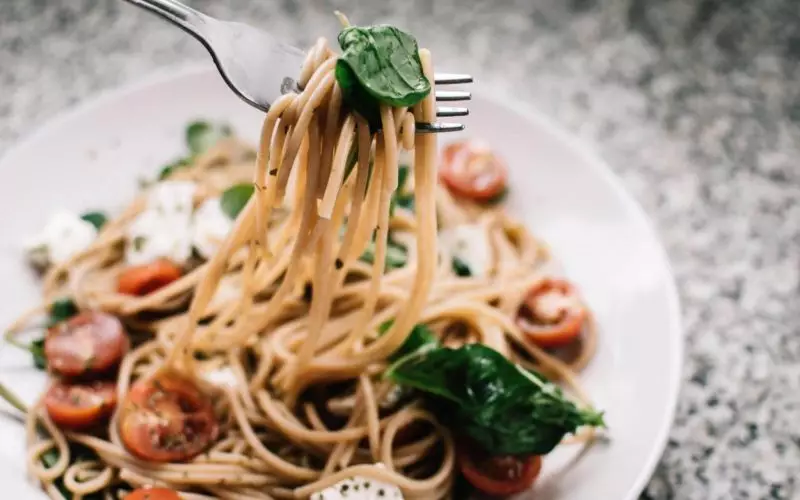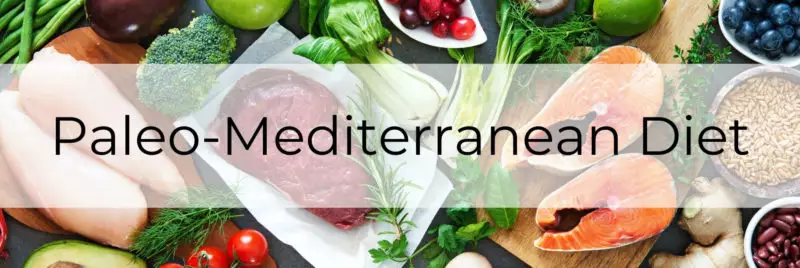
Did you know that you can combine Paleo and Mediterranean diets into a combined Paleo-Mediterranean diet?
This article looks into the differences, definitions, health benefits, and food lists of Paleo and Mediterranean diets. Keep reading to learn how to combine these eating plans and benefit from their nutritional value!
Let’s get started!
What is Paleo diet?
The Paleo diet is based on the typical diet in the Paleolithic era (2.5 million – 10.000 years ago.) The main reason supporting this diet is that it includes foods that early humans ate: these foods are estimated to genetically match the human body’s needs. [1]
Foods to eat on Paleo diet:
- Fruits
- Vegetables
- Nuts and seeds
- Grass-fed/Wild lean meat
- Fatty fish (e.g., salmon, sardines, anchovies, mackerel)
- Plant oils (e.g., olive oil, sesame oil, walnut oil)
Foods to avoid on Paleo diet:
- Grains and whole grains (e.g., foods made from wheat, oats, barley, quinoa, millet)
- Legumes (e.g., lentils, beans, peas, chickpeas)
- Dairy foods
- Refined sugar
- Salt
- Potatoes
- Processes/Packaged foods
Generally, this diet is high in protein, moderate in fat, and low-to-moderate in carbs. It supplies the body with high amounts of dietary fiber and encourages limited intake of salt and refined sugars. [2]
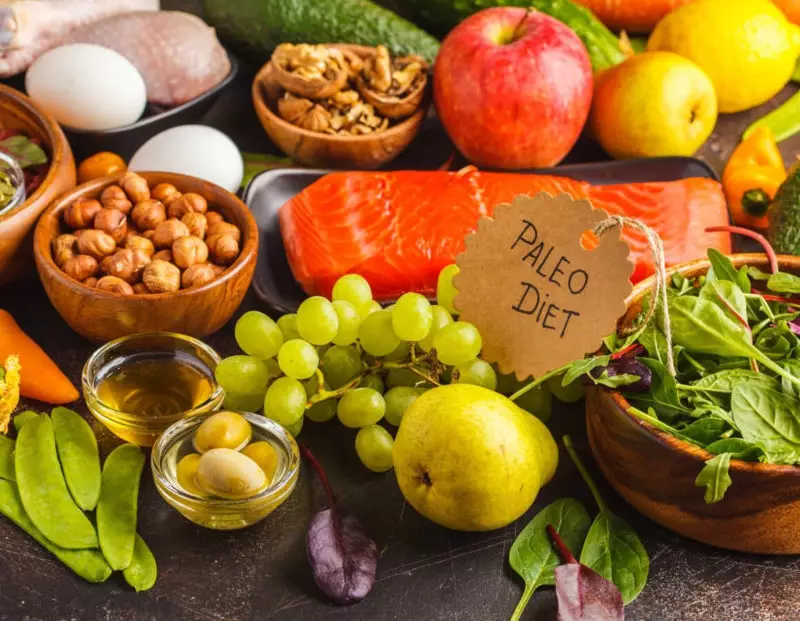
What is Mediterranean diet?
The Mediterranean diet is the traditional diet of people living in countries surrounding the Mediterranean sea: Greece, Italy, Spain, France. It encourages the consumption of whole foods and healthy fats (unsaturated fats), while limiting processed foods, refined grains and sugars, and saturated fats.
Foods to eat on the Mediterranean diet are [3][4] :
- Fruits
- Vegetables
- Whole grains (including bread, pasta, and other)
- Legumes (e.g., beans, peas, chickpeas, lentils)
- Nuts and seeds
- Cereals
- Fish and seafood (at least 2 times weekly)
- Vegetable oil (olive oil as primary fat source)
Foods to eat in moderation on Mediterranean diet:
- Poultry
- Dairy foods
- Lean meat (few times per month)
Foods to avoid on Mediterranean diet:
- Processed/Packaged foods
- Refined sugar
- Saturated fats (fatty cuts of meat, deli and processed meat)
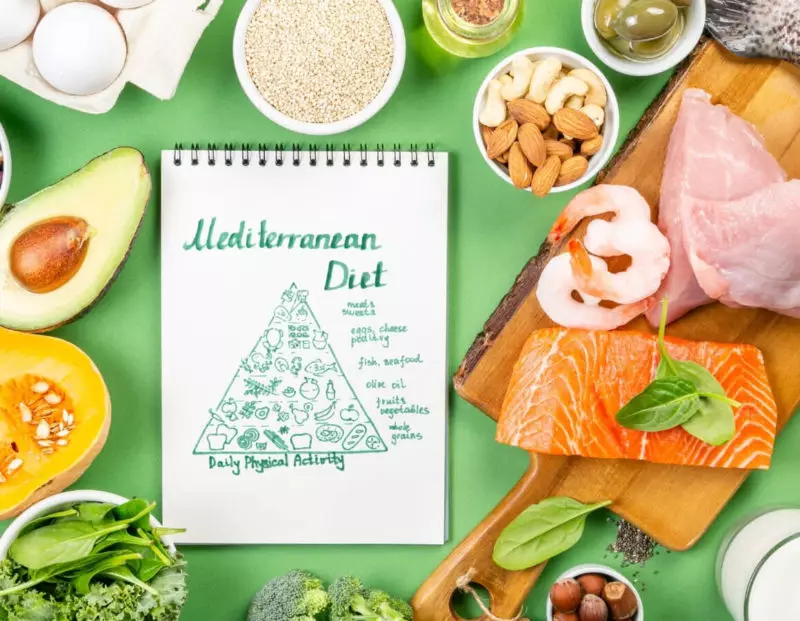
Paleo vs Mediterranean diet
Health benefits of Paleo diet
Evidence suggests that Paleo diet may improve the following markers in type 2 diabetes patients [5]:
- Lower diastolic blood pressure
- Reduced weight
- Reduced BMI
- Reduced waist circumference
- Increased good cholesterol (HDL cholesterol)
*Compared to Diabetes diet, Paleo diet showed better results in the above-mentioned markers.
Health benefits of Mediterranean diet
According to a 2017 paper, Mediterranean diet may have beneficial effect on the following health markers [7] :
- Cholesterol balance
- Protection against oxidative stress
- Inflammation
- Lower risk of hormone- and growth-related cancer
- Improved gut health
Furthermore, Mediterranean diet is associated with the following health benefits:
- 25% reduced risk of heart disease (diet adherence for 12 years)
- Reduced risk of overall mortality
- Blood sugar balance
- Reduced body mass index
- Lower risk of cognitive decline

Paleo vs Mediterranean
Evidence suggests that both Paleo and Mediterranean diets may significantly reduce systemic inflammation and oxidative stress in the body. [9]
The study found that after 12 months, Mediterranean diet adherence was 57%, while Paleo diet adherence was 35%.
Combination Paleo and Mediterranean diet
While Mediterranean and Paleo diets have their benefits, drawbacks, similarities and differences, these two diets can be efficiently combined together.
The so-called Modified Mediterranean diet takes into account some dietary guidelines set by the Paleo diet. Here is a list of foods to eat on Paleo Mediterranean diet [11] :
- Vegetables (5-9 servings daily)
- Fruits (Fruits 2-3 servings daily)
- Protein (2-3 x 3oz. servings per day: Balanced combination of lean meat, poultry, fish and seafood, and plant proteins)
- Legumes (1 serving per day)
- Nuts and seeds
- Grains (opt for whole-grain but gluten-free options)
- Dairy (choose low-fat dairy instead of full-fat)
- Fats (opt for vegetable oils and limit saturated, trans, and animal fats)
- Sweeteners (choose natural unrefined sweeteners, instead of artificial and refined ones)
- Beverages (unsweetened beverages, tea, and coffee)

